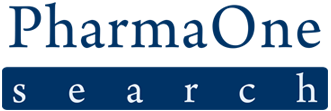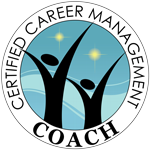A recent article highlighted several years ago talked about how executives of Fortune 1000 companies are basically in agreement that the “good old days” of rewarding employees for 35 years of loyal service are a thing of the past. Years ago, individuals who had experience at several companies were considered “job-hoppers”. Potential employers wondered what was wrong with them and why they couldn’t hold a job.
Today, changing jobs has become a necessity if individuals expect to advance their careers, especially when there are so many attractive opportunities in the marketplace. The very traits that made them unstable are now hallmarks of a well-rounded, ambitious and assertive professional.
Change and its associated risks are never easy. To quit or not to quit is often a gut-wrenching decision – requiring careful consideration and soul-searching. It involves one of those passages in life that requires abandoning the comfort of the old and assuming the risk of the new. Should you uproot your family; leave behind your friends, your status and the company that helped you progress professionally? As a professional, your career decisions must be made objectively, not emotionally; which is easier said than done.
“When one door closes, another opens: but we often look so long and so regretfully upon the closed door that we do not see the one which has opened for us.”
– Alexander Graham Bell
Once the often-agonizing decision to leave has been made, you must plan your resignation and how you will handle your employer’s response. It is important to end your relationship as professionally and as simply as possible and not to burn your bridges; you never know when you may need a future reference. Compose a brief letter stating your last day of employment (“the two week notice”) as well as expressing your appreciation of your current supervisor and that your decision is irrevocable. Keep it short, simple and positive.
Do not recite a list of grievances. Before you present your resignation letter, you must be committed to leaving. Otherwise, temporary promises and solutions in the form of a counter-offer may entice you to stay. A “project” that has to be completed forces one to have guilt about leaving their beloved company.
Surprisingly, the very best companies rarely make counter-offers. They believe they treat their employees fairly and wish them well if a better opportunity exists elsewhere. If you work for one of them, do not be disappointed if you fail to receive a counter-offer. Never take it personal. You may ask to stay the full two weeks to finish a project or two or be “whisked out the door.” Again, nothing personal and don’t take as such. Complete whatever you need to complete and leave.
On the other hand, most employers do not like to be “fired”. Your departure may jeopardize an important project or vacation schedule, create additional workload and even negatively impact employee morale.
In order to prevent you from leaving and causing turmoil within the organization, your employer may make you a counter-offer. Appealing to greed or ego, companies will offer resigning employees promotions, additional training, more money or simply promises of future consideration.
They may also prey upon the employee’s conflicting emotions by creating guilt about the present (“How can you leave us at a time like this?”) or uncertainty about the future of the new company you are joining, if they even know. Don’t volunteer. Keep it confidential if you can until asked (“We hear the Justice Department is investigating them”).
Some common tactics include:
• “We haven’t given you the recognition you deserve; please give us another chance.”
• “You’re too valuable for us to lose.”
• “We were just about to promote you (or give you a raise), but we had to keep it confidential until now.”
• “The grass isn’t always greener, you know. Why take the chance?”
Counter-offers can be very flattering. Before you fall victim to accepting one, here are a few things to think about:
• Why did you have to resign before they offered to give you what you are worth?
• Where is the additional money coming from? Is it simply your next raise a few months early?
• Is your employer buying time until a replacement can be found?
• When the next opportunity for promotion comes along, will the company consider you as loyal as your competitors for the position?
• Once the word gets out, can your relationship with your co-workers ever be the same?
• When an economic slow-down occurs, will you be the first to go?
• Have the same circumstances that caused you to consider a change disappeared?
In fact, statistics prove that nearly four out of five people who accept counter-offers are gone within the first year – and on their employer’s terms and timing.
Although your employer may truly consider you to be an asset and genuinely care about you, your interests are secondary to your boss’ career and your company’s profit. Counteroffers are attempts to manipulate you to do something that is in your employer’s best interests, not necessarily yours. You should hold a steady course from the beginning and stick with your decision to move on to a bigger and brighter future.

